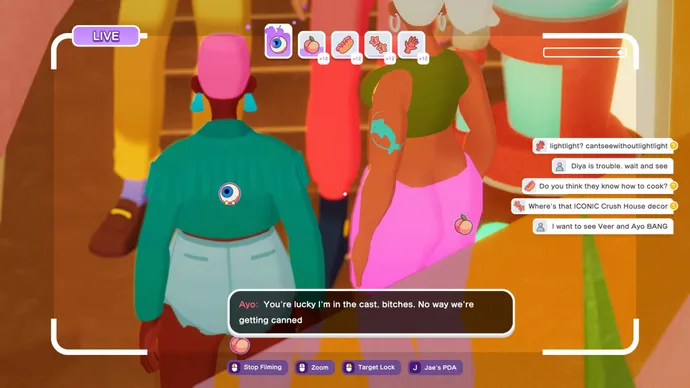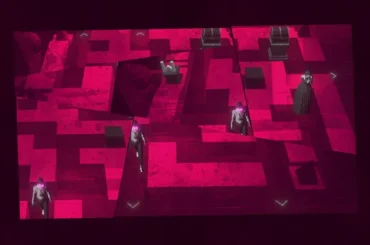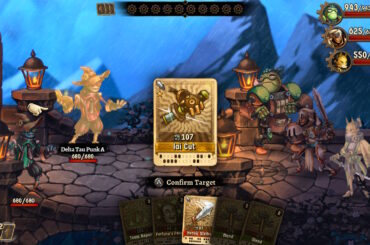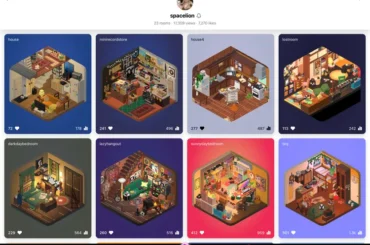The Crush House is a brilliantly crafted and thought-provoking immersive sim that invites you to uncover the humanity within its biting satire of 90s reality TV.
- Developer: Nerial
- Publisher: Devolver Digital
- Release Date: August 9, 2024
- Platform: Windows
- Available on: Steam
- Price: $16.99 / £14.99 / €16.99
- Reviewed on: Intel Core i7 12700F, 16GB RAM, Nvidia RTX 3060, Windows 11
As I zoom in on Alex’s relaxed face while he naps by the pool, it’s not out of any voyeuristic impulse. Similarly, when I track Ayo and Dija around the garden, catching their playful jabs at one another, it’s not because I’m being nosy. And as I pan toward the lighthouse silhouetted against the sunset, it’s not from a sense of wonder or curiosity about potential escape routes. Rather, I see not the individuals themselves but the hollow, faceless impressions they leave as I dutifully serve the lens.
While I’ve previously described The Crush House as a parody of reality TV, it transcends that label. In this sun-soaked first-person hybrid of management game, roguelike, and immersive sim, you take on the role of the sole camerawoman for a 90s reality TV show set on a Malibu island. Each season unfolds over a week, starting with the selection of a four-person cast from a pool of 12 characters. These characters embody a range of obnoxious archetypes, from rosy-cheeked prudes to self-absorbed gym rats, all reminiscent of slightly warped Sims characters.

Every day, you grab your camera, venture out from your stagnant basement quarters, and film the cast as they pretend to be a cohesive household. What you capture is dictated by a random assortment of viewer demographics spanning various ages, genders, and interests. Each audience segment has a HUD icon that fills up as you satisfy their preferences through your footage. A lively chat feed provides additional hints about audience inclinations, such as complaints about your zoom levels. When not filming, you screen cheeky advertisements contributed by other indie developers to earn funds for props, again tailored to specific audience tastes.
Fail to meet the required demographics in each episode on Normal difficulty, and the show will be canceled, forcing you to restart the day. Survive until Saturday, and you’ll join the cast on the gaudy Success Slide, a plastic contraption attached to the mansion’s top floor. However, success merely leads to another cycle: you reappear in the starting elevator, replay the brief tutorial, and choose a new cast for the next season. Each season raises the stakes with new demographics to decipher and satisfy. The sinister undertones of the show become more apparent with each cycle, from the ubiquitous snot-green Crush Juice to the unsettling Korby mascots and the satellite dish looming above the mansion.
The Crush House features numerous callbacks to iconic reality TV shows, from the watery nu-metal and R&B soundtrack to characters reminiscent of everyone from Nasty Nick to the Kardashians. However, the game isn’t merely nostalgic for reality TV; it offers a commentary on the modern-day concept of “Content”—the disembodied, endless stream of media that saturates our online lives. It emphasizes that in the Content economy, capturing compelling footage is about meeting metrics rather than genuinely portraying individuals.
The task of filming “Content” diverges significantly from filming real people. While reality TV thrives on the personalities of its stars, the Content industry is driven by profit margins and viewer analytics. Human figures exist only in relation to how they can be manipulated to fit the latest marketing trends.
This critique is beautifully illustrated through the game’s camera mechanics, which gradually strip away any semblance of artistry. Initially, capturing heartfelt moments and engaging interactions earns you rewards, allowing you to hone your craft. The early audience demographics focus on the human elements of the scenes—affection, conflict, flirtation—inviting you to explore your creative angles in this parkour-friendly mansion, a transparent panopticon of glass and alcoves.
However, as you unlock new demographics, the focus shifts from creating drama to meeting the cold demands of Content. Some audiences have bizarre preferences: plumbing enthusiasts obsess over the mansion’s luxurious toilet, while foodies crave images of upscale kitchenware. Sometimes, you’ll be pushed to capture footage that feels utterly disconnected from any narrative, like obscure shadows passing behind gauzy glass.
This might seem like a shortcoming in the game’s reality TV simulation, but I believe it successfully mirrors the state of our digital entertainment landscape. Rather than simply mocking the superficiality of reality TV stars, The Crush House critiques how today’s Content-driven economy commodifies curiosity and desire. The player is conditioned to behave like a soulless data-gathering machine, focusing solely on metrics rather than genuine engagement.
By the time I realize that some viewer comments are directed at me, it’s a reminder that I’m not merely an unseen hand behind the camera. My character, Jae, has her own identity, complete with a history that seeks recognition beyond the mechanical task of content creation. Engaging with the cast on a deeper level, rather than mechanically collecting footage, reveals the inauthenticity of their performances. Their scripted dialogues may be contrived, but they expose a relatable facade.
At night, the game shifts, allowing you to roam the mansion freely without viewer scrutiny. This is when you can buy props for the next episode and discover cast members with personal requests for how they wish to be portrayed. Alex, a former loner, desires to be shown making friends, while Emile, the overly confident pornstar, wants to create buzz by hiding a lover’s identity during a kiss. These requests serve not only as narrative opportunities but as pathways to unlocking deeper layers of the game and exploring potential escapes from this manufactured reality.
I could delve deeper, but after ten hours, I’m still exploring the depths of The Crush House, and I’m left questioning whether any resolution could exorcise its demons. It seems fitting to leave this journey unfinished; while we may escape the confines of The Crush House, the underlying themes it explores—our entanglement in the generation of Content—persist.
Reviewing this game has led me to reflect on my own role in content creation and video game journalism. It serves as a poignant reminder to prioritize empathy and community over viewing readers as mere data points. While The Crush House may not be “enjoyable” in the traditional sense, it offers profound insights into the dystopian realities of our Content-saturated world. It’s a striking performance that challenges us to confront the unsettling truth of our relationship with media.




